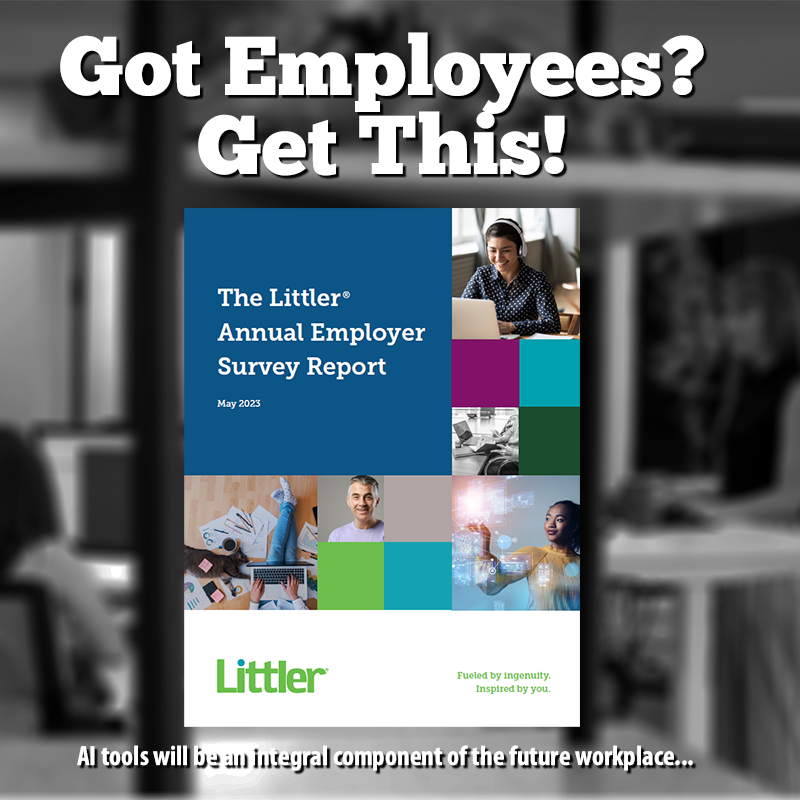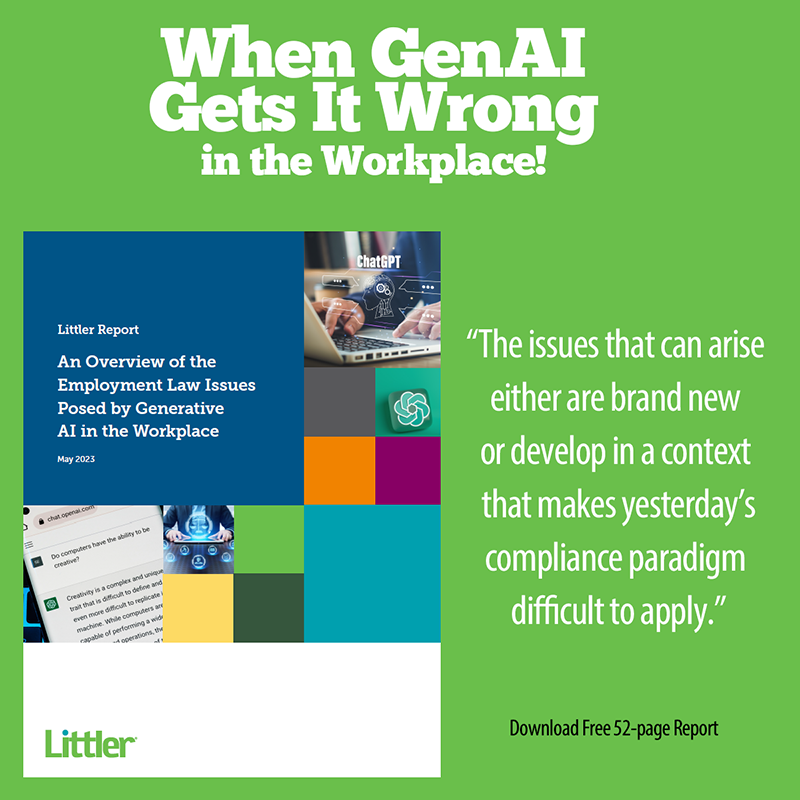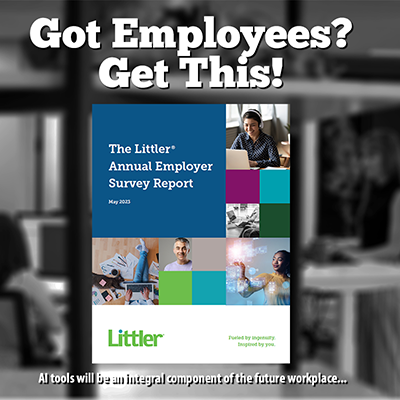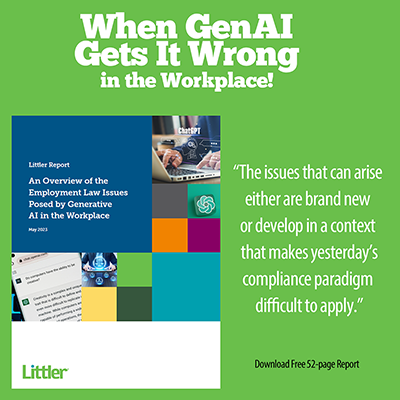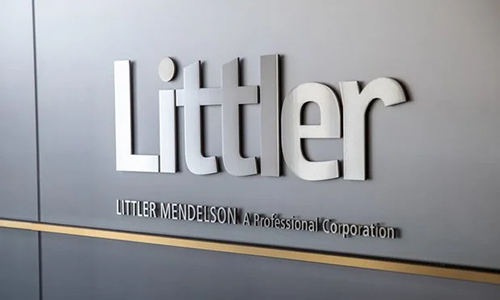Littler Twin-Pak Guide to the Workplace for 2023
A Littler cross-practice team of 26 attorneys, decades of experience, and thousands of hours of thought and advice expertly packed into two, multi-page reports free to download…and use throughout the year.
It’s like having your own legal team between two covers.
DOWNLOAD BOTH REPORTS FOR FREE
Here’s your Littler team:
By Zoe Argento, ChatGPT, Michael Chichester, Michelle Clark, Tessa Gelbman, Philip L. Gordon, Corinn Jackson, Allan King, Miguel Lopez, Deborah Margolis, Melissa McDonagh, Michael McGuire, Ellie McPike, Marko Mrkonich, Jim Paretti, Niloy Ray, Scott Rechtschaffen, Erin Reid-Eriksen, Kellen Shearin, Alice Wang, Devjani Mishra, Michael Lotito, Shannon Meade, Alyesha Dotson, Denise Visconti, Joy Rosenquist, and Britney Noelle Torres
“Widespread economic uncertainty. Evolving workforce expectations. Accelerating use of artificial intelligence (AI). A shifting patchwork of local, state and federal regulations,” is how Littler opens the Executive Summary for its 2023 Annual Employer Survey Report.
Anyone who employs anyone should get this free download, even if just to skim it to glean a few valuable nuggets, of which there are plenty.
For those who read all 30 pages, there’s a wealth of insights and benefits awaiting you. All the hot topics of our times, and then some.
As with any of Littler’s reports, all are well-researched, well-written, and well worth stopping for during your busy day.
“In an environment where some hybrid work is likely to remain the norm, employers need to pivot away from crisis management and toward intentional remote work structures that can be broadly applied and consistently enforced.“
“Given the current spotlight on equity, transparency and employee well-being, company leaders need to develop and communicate their remote work policies clearly and consistently to promote employee engagement and satisfaction.”
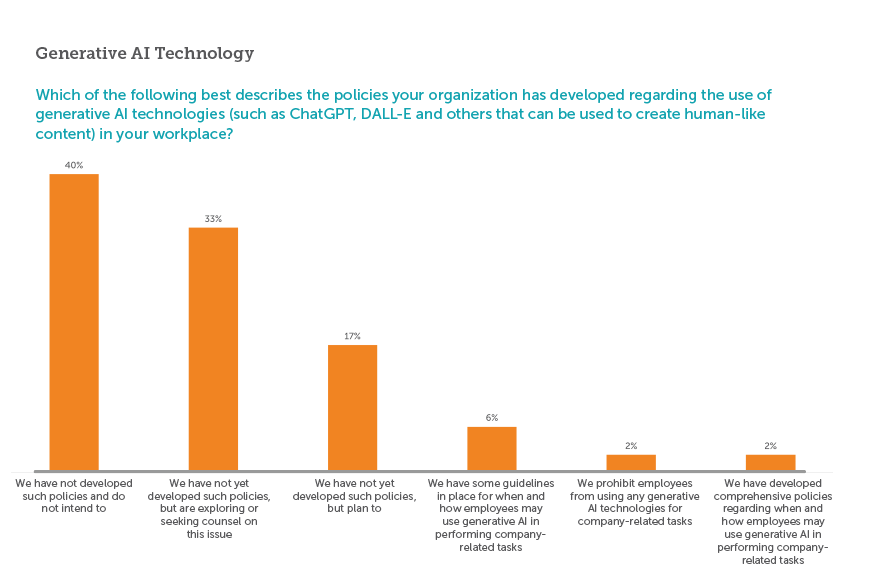
“AI tools will be an integral component of the future workplace, and organizations that do not take advantage of the benefits of these tools risk losing a competitive edge.
“However, the lack of regulatory certainty and the potential risks make it critical for employers to adopt.” these tools with purpose and compliance top-of-mind. This includes implementing AI usage and development policies, conducting due diligence on AI products, undertaking bias and efficacy audits, and carefully tracking the AI tools in use across the organization.”
Niloy Ray, Littler shareholder who helps lead the firm’s efforts to counsel on AI in Human Resource Decisions.
Generative AI
“Generative AI tools have received significant attention for their ability to swiftly produce complex, unique content that can rival the quality of human work.
“However, despite the potential benefits for increasing productivity and efficiency, generative AI also presents important considerations around accuracy, bias and ethical use.
What’s more, data entered into a chatbot is not secure, which can pose risks to companies dealing with sensitive or proprietary information.
“Despite these complexities, only one in 10 respondents say their organizations have developed guidelines for employees regarding the use of generative AI in the workplace – and 40% say their organizations have no policies around generative AI in place and do not intend to implement any.”

